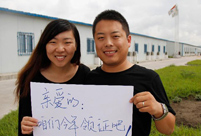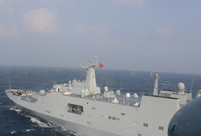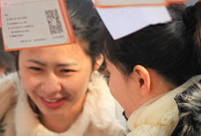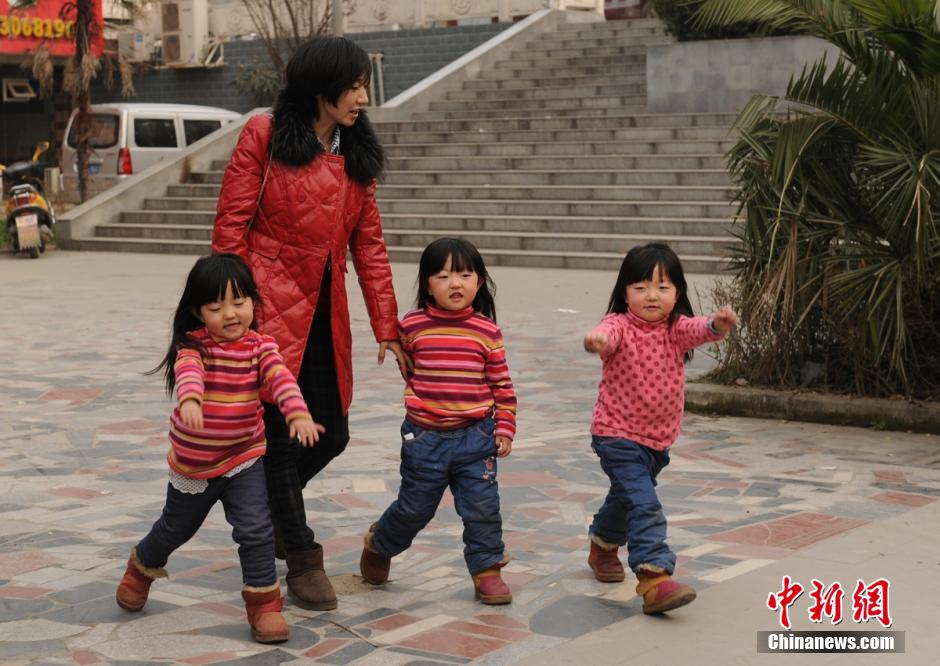 China comes in third at figure skating team event
China comes in third at figure skating team event
 China's teenager skater Yan shines at his Olympic debut
China's teenager skater Yan shines at his Olympic debut
 Taiwan-born actor stars on US TV series
Taiwan-born actor stars on US TV series
 Chinese Lunar New Year gift from abroad
Chinese Lunar New Year gift from abroad Chinese champions of Winter Olympic Games
Chinese champions of Winter Olympic Games  Zhang Yimou fined 7.48 mln for over-production
Zhang Yimou fined 7.48 mln for over-production
 Top 10 timeless female Chinese stars
Top 10 timeless female Chinese stars
 HK police disables WWII bomb in downtown
HK police disables WWII bomb in downtown
 64th Berlin International Film Festival kicks off
64th Berlin International Film Festival kicks off
Can China and the US make progress in this New Year to develop a new type of major power relations? Although Chinese President Xi Jinping and US President Barack Obama endorsed this goal at their California summit last year, it remains to be seen whether it can or will be put into action.
During a visit to China in January, I focused on this question. I came away from discussions in Beijing and Shanghai with the sense that progress, if any, will assuredly not be automatic. More dialogue at all levels is needed.
It was logical for China to propose breaking out of backward-looking policies based on counterproductive Western academic theories and official mindsets to create a new type of relations.
In China, I found that many scholars are undertaking research on major power relations which include policy options and proposals for global strategy as well as for China-US relations.
When I asked colleagues whether they were working with any US colleagues on the new type of relations concept, they said that they see little activity on the US side with respect to the topic.
Despite the commitment of Obama at the California summit, US scholars are perceived to have shown little interest so far. I could understand the disappointment of Chinese colleagues.
The US' global hegemony is fading, but US policymakers have yet to develop a realistic national strategy and foreign policy to meet present and future challenges in a constructive way.
The output of many influential US think tanks unduly emphasizes the so-called China threat and securitization of the Asia-Pacific region. Such thinking is rife on Capitol Hill and permeates Washington today.
The voices of moderate and progressive scholars are not heard often. Ideology substitutes for analysis among the hawks and leads to bad policy.
The Chinese side has a deep distrust with regard to perceived US military capabilities and intentions, a colleague emphasized to me.
Tension with Japan flared during my visit. Historically, the US has had friendships with both China and Japan with the exception of the Cold War era and the WWII era.
Today, of course, economic relations between all three countries are a vital international concern. So the rightward trend in Japan, and Japanese Prime Minister Shinzo Abe's policies, are frustrating for Chinese colleagues as well as for some US colleagues.
Ideally all three countries, as major powers in the present era, should have harmonious relations, should focus on peace and development, and should work in concert on issues of mutual concern.
The Korean situation also urgently requires some innovative thinking and policy. I suggested the neutralization of the Korean Peninsula. The concept would entail a non-nuclear North and the removal of US military presence from the South. Reunification could come later through a mutually agreed on process.
In discussing a range of issues with Chinese colleagues, it was clear to me that more dialogue at all levels is needed to promote the goal of a new type of relations.
The arrival of a new US ambassador to China offers the opportunity to increase such dialogue. US Secretary of State John Kerry will visit China soon.
In this New Year, a follow on "informal summit" between Xi and Obama is needed.
Direct dialogue at the presidential level can best add momentum to the process of building a new type of major power relations.
Obama's upcoming visit to the Asia-Pacific region in April offers an appropriate opportunity for such direct dialogue at the highest level for Washington and Beijing.
The author is an educator and former senior professional staff member of the Senate Committee on Foreign Relations.
 Special Coverage: Sochi Winter Olympic Games
Special Coverage: Sochi Winter Olympic Games  A day of a female high-speed train chief attendant
A day of a female high-speed train chief attendant New Year greetings from Chinese nationals in Africa
New Year greetings from Chinese nationals in Africa PLA navy conducts landing drills in South China Sea
PLA navy conducts landing drills in South China Sea  Blind date fair in Hangzhou
Blind date fair in Hangzhou  Highlights of Chinese New Year celebrations around the world
Highlights of Chinese New Year celebrations around the world  How do the Chinese spend their money during Spring Festival?
How do the Chinese spend their money during Spring Festival? 'Milk Tea' girl hosts Spring Festival gala of universities in U.S.
'Milk Tea' girl hosts Spring Festival gala of universities in U.S.  Brave mother fights cancer, enjoys Spring Festival with her triplets
Brave mother fights cancer, enjoys Spring Festival with her triplets President Xi attends opening ceremony of Sochi Winter Olympics
President Xi attends opening ceremony of Sochi Winter Olympics Highlights of opening ceremony of Sochi Winter Olympic Games
Highlights of opening ceremony of Sochi Winter Olympic Games Snowscape in Chinese New Year
Snowscape in Chinese New Year Interesting horse figures in life
Interesting horse figures in life  Top 20 most beautiful Chinese stars
Top 20 most beautiful Chinese stars  Top 10 Chinese films in 2013
Top 10 Chinese films in 2013Day|Week|Month